I would also like to point out that this reliance upon Roman Catholic Theology Proper is also seen in Marx’s rejection of Nicene Triadological analogies and his rejection of the Father’s Monarchy as an analogy for his economic theory; see here.
In today’s confusing world, finding one’s Economic identity is an almost impossible task. The Jesuit Counter-Reformation has saddled a Hegelian system of control upon the entire Western Hemisphere. A Dialectic between Capitalism and Communism has now fully captivated the entire world’s attention. On the one hand, the abuses of Yankee Capitalism and their international Banking and Monetary control of the world’s Governments are too grievous to ignore. On the other hand, Communism’s outright 20th Century Inquisition is also too grievous to ignore. Supposedly Communism fell with the Revolutions of 1989 and the fall of the Berlin Wall. However, with the rise of Socialism here in America and the progressive power and Influence of the United Nations it is hard to believe. Marx and Engels were confident in their affirmation that their movement (The Enlightenment) had overturned Christianity in the same way that Christianity overturned Paganism’s influence in the world. Yet atheists today groan at their minority status and have been forced to organize into support groups to keep themselves from psychological meltdown.
The nations of men are now in a state of anticipation. Who will lead this confused and answerless world? Out of chaos will come order.
To understand truly the nature of our problems one must understand the real History behind Western Civilization. It is because we THINK that the Enlightenment ended Christianity and with that the influence of the Roman Church and its Holy Roman Empire, that we have been so easily manipulated. What we have saddled upon us is nothing less than the old Luciferian, Neoplatonic and Pelagian system of the Jesuits. Yankee Capitalism and its Military Industrial Complex is just as Inquisitional as Communism’s 20th Century Revolutions. Capitalism’s Usurious Bankers redistribute wealth just as effectively if not better than any Communist Dictator. We will see later in this series of blogs on Communism just how much agreement there is between Yankee Capitalism and Communism; but for now, as always, I like to chase every rabbit down to the very depths of its burrow: Metaphysics. The fundamental agreement between Yankee Capitalism and Communism is Pelagianism; summarized by the infamous Aleister Crowley who stated “Do what thou wilt shall be the whole of the Law”. That is, activity is always arbitrary. Human behavior can never said to be absolutely caused or even directed by nature. Thus, the real issue behind our Economic distress is not mathematics and it is not financial. Our problem is Anthropological and Sociological. We have the wrong view of man and his relation to others. And where did this error arise? It came from the Latin, Neoplatonic Theology of the Roman Catholic Church and its dialectical construction of the Filioque Heresy. Basically, it came from the idea that the Ultimate principle of all things is a Monad-Huperousia. In Roman Catholic Theology, it is the One of Plotinus. In Materialist Philosophy it is the One, the pure nature of Heraclitus. It is no secret that Marx’s writings operated off of Hegel’s.[1] It was not a sheepish allegiance to Hegel that guided Marx, but Marx grounded his entire theory on Hegel’s Monad and its dialectic. Marx states in the 1873 Afterword to the Second German Edition of Capital, Volume One,
“The mystifying side of Hegelian dialectic I criticised nearly thirty years ago, at a time when it was still the fashion. But just as I was working at the first volume of “Das Kapital,” it was the good pleasure of the peevish, arrogant, mediocre Epigonoi [Epigones – Büchner, Dühring and others] who now talk large in cultured Germany, to treat Hegel in same way as the brave Moses Mendelssohn in Lessing’s time treated Spinoza, i.e., as a “dead dog.” I therefore openly avowed myself the pupil of that mighty thinker, and even here and there, in the chapter on the theory of value, coquetted with the modes of expression peculiar to him. The mystification which dialectic suffers in Hegel’s hands, by no means prevents him from being the first to present its general form of working in a comprehensive and conscious manner. With him it is standing on its head. It must be turned right side up again, if you would discover the rational kernel within the mystical shell.
In its mystified form, dialectic became the fashion in Germany, because it seemed to transfigure and to glorify the existing state of things. In its rational form it is a scandal and abomination to bourgeoisdom and its doctrinaire professors, because it includes in its comprehension and affirmative recognition of the existing state of things, at the same time also, the recognition of the negation of that state, of its inevitable breaking up; because it regards every historically developed social form as in fluid movement, and therefore takes into account its transient nature not less than its momentary existence; because it lets nothing impose upon it, and is in its essence critical and revolutionary.”[2]
Joseph Farrell states in his God, History and Dialectic Volume 3, [3]
“Thus, what we said long ago in reference to Plotius’s One – that It had to have the Many standing over against It and deriving dialectically from It in order for It to be the One – was essentially the deduction that Hegel was to make…
With Hegel, then, one encounters a philosophy of Logic, Metaphysics, and History in which the “Augustinian inevitabilities” are worked out consciously, deliberately, and in detail. Kant himself had undertaken no such derivation of the categories because they were for him “merely subjective epistemological forms of our minds” and not “an ontological principle of the explanation of the universe.” Once we have deduced these two things, says Hegel, we may then ask the obvious questions: (3) what is the First Category, i.e., where do we start? and (4) how do we deduce all other categories from this first category?”
It is at this point, I would like to say that the Scripturalist Philosophy, and the revisions that Ryan and myself have made, in distinguishing a logical from a chronological order, improve and demonstrate the ambiguity and confusion in Hegel’s understanding of the word “start”. “Start” could mean the chronological beginning of the order of all things in the genus of being, or it could mean the logical beginning of a propositional order of an epistemic theory. Scripturalism, in taking Euclid’s Ordine Geometrico Demonstrata, points to the later. We begin with the Protestant canonical list and put epistemology before metaphysics. Or should I say, we choose to begin with the genus of epistemology and not the genus of being.
Farrell continues,
“As was seen, Hegel, like Duns Scotus or Eriugena long before him, made Being itself that first category [Unlike the Scriputralists.-DS].
…for Hegel every category or universal contains its own opposite in itself at one and the same time…
The First Categorical Triad: Being, Nothingness, Becoming
Once this has been said, if one says “Being” one, according to Hegel, immediately also posits its negation: Non-Being, or Nothingness. Thus Being, the thesis, contains Non-Being or Nothingness, its antithesis. But Hegel, following the Augustinian [And by Augustinian he is referring to Augustine’s Construction of Filioque.-DS] and Joachimite pattern of the dialectic, maintains that from the two arises a third term, a “consubstantial love of both”, as the two inevitably, in the process of thought, pass it into each other. [FN: W.T. Stace, The Philosophy of Hegel (Dover, 1995), pg. 91-DS]…
W.T. Stace puts the filioquist dialectic very succinctly: The first category contains its own opposite[4] and is identical with it. At this point the two categories stand confronting and contradicting each other.
But it is impossible to rest in this contradiction for it means that opposite categories are applicable to the same thing at the same time…The category of becoming therefore resolves the contradiction. In other words the contradiction between the first and second categories is always reconciled in a third category which is the unity of the two preceding. The third category contains within itself the opposition of the other two, but it also contains their underlying harmony and unity…The three members of the triad are sometimes called the thesis, antithesis, and synthesis, respectively. [Ibid. 92-93-DS]…
For the present, however, it is crucial to note that Hegel sees the deduction of categories as a potentially infinite process, recalling the prediction made by St. Photius in the ninth century[5]: The synthesis being reached now posits itself as a new assertion, as an affirmative category which thereby becomes the theses of a new triad. For as soon as it lays itself down as a positive assertion its opposite is seen to issue out of it and to involve it in self-contradiction. This new contradiction has again to be resolved in the higher unity of a new synthesis. This in turn becomes the thesis of a new triad, and so on throughout the whole series. [Ibid. 93]…
Indeed, when Hegel finally conceives of Matter as a “deduction” of “Pure Consciousness” he is doing little more than restate Plotinus, for whom matter was “the uttermost emanation from the One.” [FN: Plotinus, Enneads I: 8: 7, trans A. H. Armstrong (Harvard: Loeb Classical Library), p. 199.]
Farrell provides his pictorial gloss of Hegelianism applied to Augustinian Trinitarianism:
Here, in place of the Father we have the Thesis, the Son is Anti-thesis and the Spirit is the Synthesis, the bond of love between Father and Son. This language presumes upon an inherent opposition and hostility between Father and Son because in Neoplatonism, distinction implies hostility. Thus, in Marx’s philosophy the distinction in rank between women and men implies hostility. There exists none in nature truly and really, and thus Communist propaganda and lies must be spread and fomented in the minds of men and women to create said hostility. The same goes for the distinctions between Labor and Capital. And thus to synthesize the two, Marxism is put forward.
Farrell states,
“Hegel was, after all, attempting, so he thought, to do a ‘Christian ontology’ and a ‘Christian philosophy of history.’ The filioquist Trinity is not some accidental afterthought, nor even the summit or End to which his system tended; it was its dialectical sine qua non. Without the filioque there simply would have been no Hegelian, or Marxist, dialectic [And thus no later Barthian dialectic either.-DS]. For Hegel…History itself is the double procession of the Holy Spirit from the Father and the Son.”
Hegel says in Lectures on the Philosophy of Religion (One Volume Edition),
“The second determination is the kingdom of the Son, in which God is [present] for representation in the element of representing as such. This is the moment of particularization as such…Considered from the first standpoint, God as the Son is not distinguished from the father, but is merely expressed in the mode of sensibility. In the second element, however, the Son obtains the determination as other, and thus we pass out of the pure ideality of thinking and into representation. If, according to the first determination, God begets only a son, here be brings forth nature. Here the other is nature, and distinction comes into its own…But since in this history the divine steps into view for spirit, the history loses the character of external history. It becomes divine history, the history of the manifestation of God himself.
This constitutes the transition to the kingdom of the Spirit, which comprises the awareness that human beings are implicitly reconciled with God and that reconciliation exists for humanity. The process of reconciliation itself is comprised in the cultus.”
Footnote 67, pg. 416-417
Here we see a clear link between Plotinus’ infinite emanations, how this principle is directly involved in the Filioque doctrine which I have shown for years,[6] and how the Filioque then is the foundation for Hegel’s view of Historiography. Farrell states,
“By so faithfully reproducing the Augustinian dialectic as an historical process, Hegel pointed the way forward to two further interpretations:
(1) An endless and infinite progression of Thesis, Antithesis, and Synthesis, following the ‘Iamblichan’ side of the dialectic, first criticized by St. Athanasius as a form of polytheism, and reiterated later by St. Photius in reference to the filioque until ‘the series they imagine grows into a multitude of processions’ and collapses into polytheism and anarchy,
(2) A return to the state of the original and undifferentiated differentiation which began the process, following the porphyrian side of the dialectic, and reproduced by Aquinas’s characterization of the filioque as a cycle which concludes in the same substance in thich it began.
This return to the “State of Simplicity” constitutes the Hegelian End of History, that moment when the process of dialectical conflict of thesis and antithesis resolves into an ultimate synthesis from which no further dialectical procession arises. This option, well-known in its Marxist version of ‘final Communism’, has been more recently ‘revised and updated’ by one Francis Fukuyama as an apologetic for the emerging global triumph of the Second Europe.” [7]
Alan Woods and Ted Grant, in Reason in Revolt: Marxist Philosophy and Modern Science state in Part One, “Dialectical Materialism”,
“Positive is meaningless without negative. They are necessarily inseparable. Hegel long ago explained that “pure being” (devoid of all contradiction) is the same as pure nothing, that is, an empty abstraction. In the same way, if everything were white, it would be the same for us as if everything were black. Everything in the real world contains positive and negative, being and not being, because everything is in a state of constant movement and change. Incidentally, mathematics shows that zero itself is not equal to nothing.
“Zero,” writes Engels, “because it is the negation of any definite quantity, is not therefore devoid of content. On the contrary, zero has a very definite content. As the border-line between all positive and negative magnitudes, as the sole really neutral number, which can be neither positive nor negative, it is not only a very definite number, but also in itself more important than all other numbers bounded by it. In fact, zero is richer in content than any other number. Put on the right of any other number, it gives to the latter, in our system of numbers, the tenfold value. Instead of zero one could use here any other sign, but only on the condition that this sign taken by itself signifies zero = 0. Hence it is part of the nature of zero itself that it finds this application and that it alone can be applied in this way. Zero annihilates every other number with which it is multiplied; united with any other number as divisor or dividend, in the former case it makes this infinitely large, in the latter infinitely small; it is the only number that stands in a relation of infinity to every other number. 0/0 can express every number between –_ and +_, and in each case represents a real magnitude.”
The negative magnitudes of algebra only have meaning in relation to the positive magnitudes, without which they have no reality whatsoever. In the differential calculus, the dialectical relation between being and not being is particularly clear. This was extensively dealt with by Hegel in his Science of Logic. He was greatly amused by the perplexity of the traditional mathematicians, who were shocked by the use of a method which makes use of the infinitesimally small, and “cannot do without the suggestion that a certain quantity is not equal to nil but is so inconsiderable that it may be neglected,” and yet always obtains an exact result.
http://www.marxist.com/science-old/dialecticalmaterialism.html
Thus upon the foundation of the old Pagan Philosophy that states that there is no good without evil, and reality is thus a balance an unbalancing and a re-balancing of this eternal dialectic, Marxism is logically erected. Historically, Marxism came to this foundation-was ushered onto this Foundation by Hegel’s reliance upon the old Roman Catholic Filioque heresy!
My Protestant ancestors in the British Isles followed Rome implicitly in their Theology Proper and provided no challenge or Reform to it. For this God has burdened us with such a scourge as has never existed in any generation according to his Holy judgments and justice. May we repent and come back to the original Nicene Creed and a single procession of the Holy Spirit that God may deliver us from all of the severe judgments that he has placed upon us in righteousness.
[3] The following quotations will be taken from pages 499-509
[4] My readers are very familiar with this dialectic: https://eternalpropositions.wordpress.com/2011/10/01/darkness-a-consistent-hyper-calvinist/
[5] This is the infinite emanations that I showed in my summary video of Nicene Triadology and my writings on the Filioque:
http://articulifidei.blogspot.com/2012/03/drake-sheltons-recent-youtube.html
http://olivianus.thekingsparlor.com/triadology/a-scripturalist-construction-of-greek-and-nicean-triadology-part-3-the-procession-of-the-spirit-by-drake
[7] 509




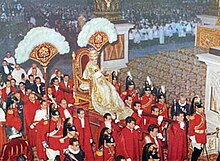



-1-.jpg)

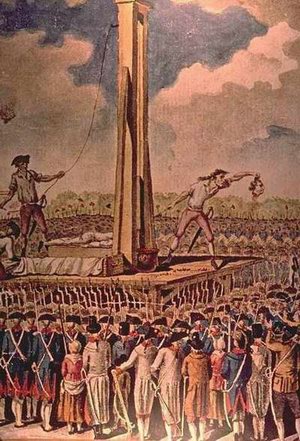





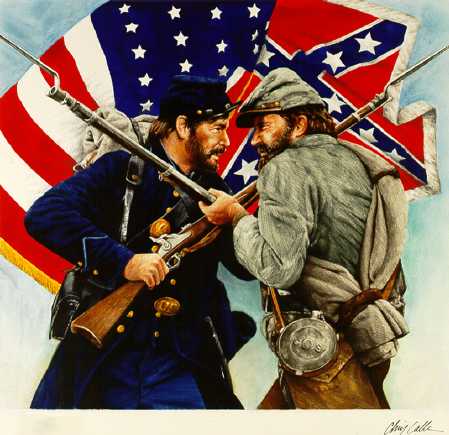




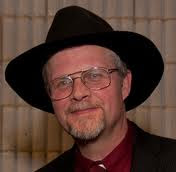

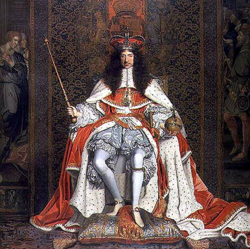
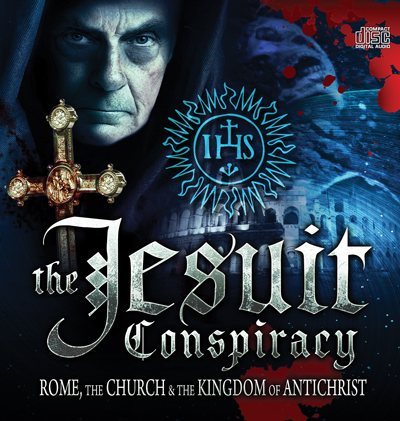









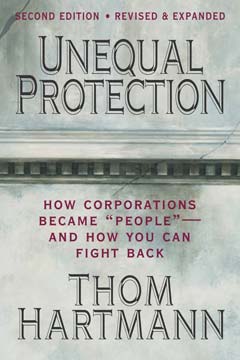
Even though I don’t go wtih Farrell in his theological conclusions, that book was such a grand read. Thank you for neatly summarizing this section of Farrell.